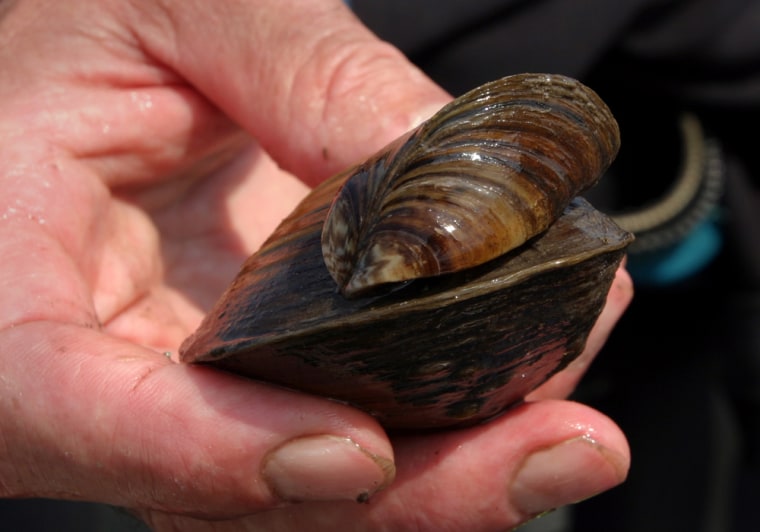Proposed rules meant to keep foreign species out of the Great Lakes would require oceangoing ships to flush their ballast tanks with salt water before entering the St. Lawrence Seaway.
The rules also call for increased inspections of salt-water freighters, believed to be a leading source of invasive species such as zebra and quagga mussels that scientists say are causing massive environmental and economic damage to the lakes.
The proposed U.S. regulations, announced Wednesday, are designed to match requirements imposed by Canada in 2006. They are scheduled to take effect in late March, before the navigation season begins. A public-comment period lasts until Jan. 30.
"These new, tougher ballast water regulations will protect the Great Lakes-St. Lawrence Seaway ecosystem and permit vital marine commerce to flourish," said Collister Johnson Jr., administrator of the U.S. St. Lawrence Seaway Development Corp.
Coast Guard regulations already instruct freighters bound for U.S. ports to exchange ballast water at sea. But ships hauling cargo can get around the requirement by declaring they aren't carrying ballast.
Under the proposed rules, ships carrying even small amounts of water or sediment would have to rinse their tanks with salt water at least 200 miles off any North American shore.
At least 185 exotic species have been found in the lakes. Many were scooped into ship ballast tanks in foreign ports, hauled across the Atlantic and dumped into the Great Lakes when the ships emptied their tanks to take on cargo.
Ballast tanks help stabilize ships in rough ocean waters.
The Healing Our Waters-Great Lakes Coalition, representing a number of environmental groups, described the proposed rules as "a helpful interim measure" that doesn't go far enough.
The coalition and other groups are pushing for federal legislation requiring ships to install devices that would thoroughly cleanse ballast tanks. Separately, the U.S. Coast Guard is considering new ballast regulations.
